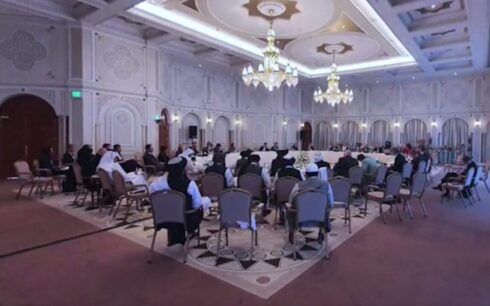The UN Security Council will hold its quarterly briefing on Afghanistan on June 23, as the country faces escalating humanitarian and human rights crises.
Roza Otunbayeva, head of the UN Assistance Mission in Afghanistan (UNAMA), will brief the Council alongside Sima Sami Bahous, executive director of UN Women, and a senior representative from the Office for the Coordination of Humanitarian Affairs (OCHA). The closed consultations will follow a public session, with Council members expected to explore a range of political and humanitarian issues, including the controversial “Mosaic” engagement roadmap.
The humanitarian situation in Afghanistan remains dire. According to UN figures, over 23 million Afghans—more than half the population—are in need of assistance. Funding shortfalls, compounded by the recent suspension of U.S. aid, have forced many aid agencies to scale back operations. OCHA warns that 400 clinics have closed in recent weeks, and millions may not receive assistance in 2025.
The Council is also expected to discuss the Taliban’s enforcement of the “Promotion of Virtue and Prevention of Vice” law, which UN reports say has led to systematic restrictions on women and girls and disrupted aid delivery. A UNAMA report described widespread enforcement of gender-based prohibitions, including the denial of services to women not accompanied by male relatives.
Diplomatically, the Council remains divided. The United States, Britain and France have conditioned recognition of the Taliban on adherence to human rights and international norms. China and Russia, however, favor engagement without such preconditions and have advocated for the release of Afghanistan’s frozen assets.
These divisions have left the Council deadlocked on procedural matters. It has not yet agreed on which member state will draft future resolutions on Afghanistan, a task previously held by Japan. While the U.S. supports South Korea, China backs Pakistan. No consensus has been reached.
One potential flashpoint in the upcoming session is the Mosaic roadmap, a draft framework for political engagement between the Taliban and international stakeholders. Critics argue that the plan downplays the role of Afghan civil society and risks legitimizing Taliban rule without concrete commitments on rights or governance.
Meanwhile, reports indicate that Russia has deepened ties with the Taliban, raising their diplomatic status and offering counterterrorism support. In contrast, Germany and other European nations continue to stress that recognition should be tied to Taliban behavior, particularly on human rights.
As Afghanistan nears the fourth year under Taliban control, no country has formally recognized its government. The June meeting may determine whether the Council will push for tougher conditions—or soften its stance in search of engagement.





